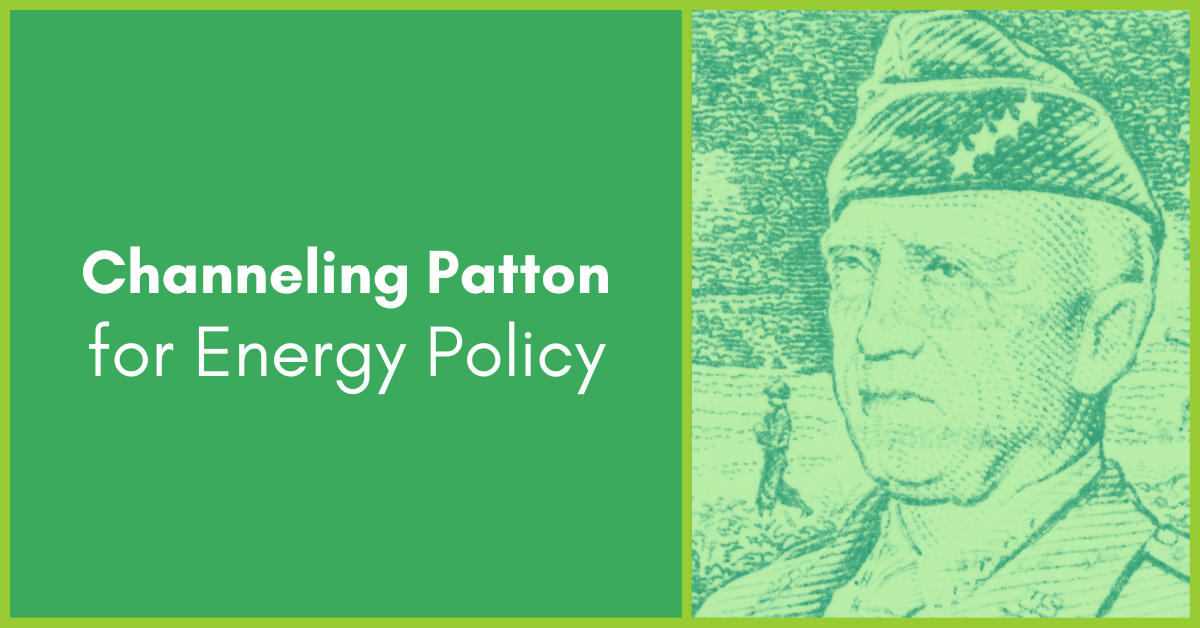
Of 34 personality characteristics, my top strength, according to Gallup CliftonStrengths®, is “context.” What does context mean, according to Gallup? History. Gallup describes the history strength: “You look back. You look back because that is where the answers lie. You look back to understand the present. From your vantage point, the present is unstable, a confusing clamor of competing voices. It is only by casting your mind back to an earlier time when the plans were being drawn up that the present regains its stability. The earlier time was a simpler time. It was a time of blueprints.” Hmm. This sounds a lot like our electrical grid, except for the “confusing clamor of competing voice.” It isn’t confusing to me.
I had no use for history in school because I knew it all, but as I gained life experiences through my 30s and 40s, I learned that things repeat, peoples’ weaknesses, and the seven deadly sins are constant. Unfortunately, no one explained why history is vital in the present.
One of my favorite 25 movies is Patton. Patton famously defeated the German General Rommel; how? As Patton said in the movie, “Rommel. You magnificent bastard, I read your BOOK!”
 Reading or learning how the adversary or competition thinks is the key to winning. However, reading, watching, or listening to the adversary is repugnant to 99% of human beings. Still, I once read that the difference between successful and unsuccessful people is that successful people do what unsuccessful people are unwilling to do.
Reading or learning how the adversary or competition thinks is the key to winning. However, reading, watching, or listening to the adversary is repugnant to 99% of human beings. Still, I once read that the difference between successful and unsuccessful people is that successful people do what unsuccessful people are unwilling to do.
I made my predictions for this year on January 4. One prediction I did not make was the energy chaos of this year. The right is having a heyday with European, and especially Germany’s, catastrophic energy fiasco.
All Eggs in the Despot’s Basket
Let us look at some second and third-order outcomes of U.S. policy in the war and E.U.’s demonstrably horrible and enabling energy policy since 2011. In 2011, Fukushima’s reactor plants were severely damaged by a massive Tsunami, but zero deaths occurred because of excessive radiation. Nevertheless, Germany, which has no natural disasters of any kind, and a tiny coastline to the North Sea, decided to close its nuclear plants because Tsunamis always happen in the North Sea. Doing so put its energy reliance on the loving, trusted care of Vladimir Putin.
Heating Homes with Coal in Poland
Polish homeowners are waiting days to acquire a few tons of coal to keep their homes warm this winter. And “Heat pumps take off in coal-loving Poland” as a way to declare independence from Russian energy (40% of Poland’s home-heating coal comes from Russia).
Heating Homes with Wood in Germany
Germans are scrapping for wood to keep warm this winter, as electricity prices are 500% higher and natural gas prices are 1000% higher than a year ago. Imagine paying $3,000 to heat your home for one month. Coal and wood heating looks like the early 20th century.
Dirty, Wasted Natural Gas Emissions from Putin
Due to sanctions on natural gas, Russia flares $10 million worth of gas, emitting 9,000 tonnes of CO2 every day. Russia is reportedly stuck without a compressor for the Nord Stream 1 pipeline and is withholding natural gas from Europe as a weapon. Why are they flaring natural gas? Probably because it comes up with oil, which Russia can get to markets through Iran and China.
Natural Gas Laundering through the CCP
Meanwhile, the Chinese Communist Party is open for business, buying Russian natural gas, liquifying it, and selling it back door for a “kidney’s worth of markup” to… Europe. This is confirmed by the article “China throws Europe an energy lifeline with LNG (liquefied natural gas) resales” by the Financial Times of London. China doesn’t have excess natural gas resources. They are buying it, marking it up one kidney per dekatherm, and selling it to Europe. As I wrote, water always finds the leak.
Trains for Coal
Europe is so cool because you can go everywhere by rail, except when the country says, eh, eh, eh, coal gets priority over passenger trains.
Applying Lessons Learned
What’s the point of all this, Jeff? First, I have a passion for history, writing about stupid, and avoiding stupid. We must look down range and be realistic. All of the above secondary and tertiary impacts can be put into the buckets described in Rant Revelations Unleashed. These lessons learned apply to program design, which requires a heavy dose of understanding of human nature, from light to grave transgressions of the seven deadly sins. A few examples of looking downrange in program design include:
- Avoid fraud
- Forecast barriers and craft strategies to avoid or destroy barriers
- Identify leverage points to get critical things like information and action from participants and market actors
- Proactively install guardrails to avoid data breaches
